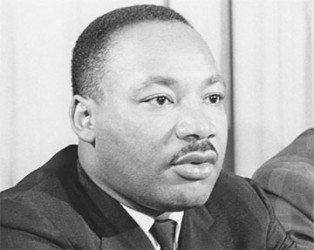By United States Embassy Chargé d’Affaires Bryan Hunt
Americans on each third Monday of January honor the life and achievements of the Rev. Martin Luther King Jr., (1929–1968), the 1964 Nobel Peace laureate and the individual most associated with the triumphs of the African-American civil rights movement during the 1950s and 1960s. As political organizer, supremely skilled orator and advocate of nonviolent protest, King was pivotal in persuading his fellow Americans to end the legal segregation that prevailed throughout the South and parts of other regions, and in sparking support for the civil rights legislation that established the legal framework for racial equality in the United States.
Dr. King, like South African President Nelson Mandela, was a visionary who believed in the human spirit and chose nonviolenceto armed resistance. Like Nelson Mandela he suffered greatly, but he converted his suffering into inspiration for millions of people in the United States and throughout the world.

In his famous Letter from the Birmingham Jail written in April 1963, he wrote that “Injustice anywhere is a threat to justice everywhere. We are caught in an inescapable network of mutuality, tied in a single garment of destiny. Whatever affects one directly, affects all indirectly.”
The civil rights movement was driven by acts of courage – by individuals who stood up for what was right. Despite the threats and acts of intimidation, leaders like Dr. King, Rosa Parks, and Thurgood Marshall stood their ground and fought for their beliefs.
It is because of their courage and perseverance that historic legislation including the Civil Rights Act of 1964 and the Voting Rights Act of 1965 were passed.
With four words, “I Have A Dream,” Dr. King inspired thousands of people to stand up and fight for equality, peace and justice. His universal words were not just inspiration for African Americans, they gave hope to the poor and disadvantaged all of over the world.
By honoring Dr. King, we honor all people, past and present, who stand up for equality and justice. These are common values that the United States shares with Guyana.
We lost Dr. King in 1968 far too early at just 39 years of age, but his spirit lives on in the hearts and minds of millions of children and adults around the globe. Dr. King’s writing and speeches of more than 50 years ago still resonate today. Let Freedom Ring!





